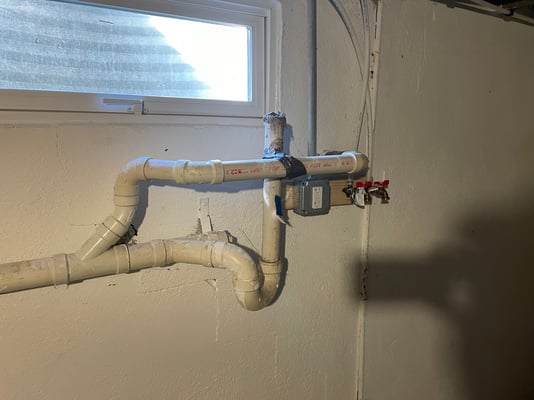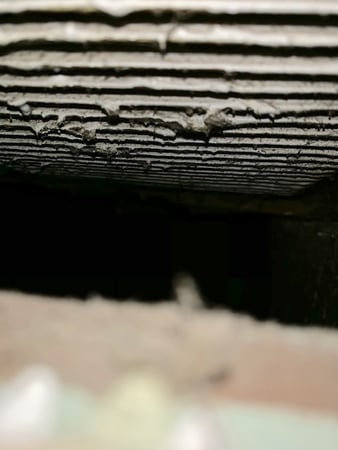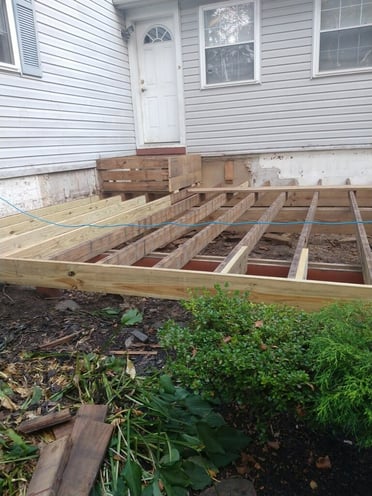I don't care if you are a 1st time homebuyer, or have owned multiple homes over the years, here are 7 tips you should do as part of the home buying process and post purchase.
1. Pay for all the inspections that are necessary to complete your Due Diligence. Due diligence is what a prudent buyer does to evaluate real estate prior to purchase. You can think of it as a health check on a property. If the house has a pool, have a pool inspection, pool repairs are expensive. Same goes for termite inspection. Get a home inspection, which inspects a variety of components of a home, you can find out the roof has little life left, HVAC system is old, or perhaps there are numerous building code violations that need to be fixed do to a DIY handyperson.

2. Circling back to inspections, and your repair requests. In short, maybe you find 10 issues and request 5 to be fixed. If the 5 items get fixed ask for receipts to verify the repair and who did it. Why? Don't you want an electrician to fix electrical issues? Short story, couple bought a home and one of the items that required repair was a new cap on a chimney. About a year after ownership they noticed water coming into the chimney, the newly installed cap ($600) was defective. They had to track down the sellers and get the paperwork for the company that did the cap, as it was under warranty. It was a total PIA to track the paperwork down and it would have been so much easier if they had the receipts prior to settlement. Second story, sellers were supposed to address basement water issue (water was coming into basement on one side), sellers said they installed a membrane to the exterior basement wall. Well water was still an issue, new owners had the wall dug up ($$$) and found no membrane. Buyers had no documentation that the work was done, threatened to sue sellers who conceded (they forgot to do it) and paid for the work 9 months after they sold the work. Seeing is believing.
Bottom line if you request a repair, get paperwork and warranty from the sellers for your records, and protection.
3. Do a little historical research on the home by contacting the local municipality and request records for permits of work performed. Home improvement shows have enticed homeowners to do work themselves where permits were required but may not have been obtained. Hey if you find a roof was installed 5 years ago, its likely under warranty for another 15 years, maybe you want to request the warranty? Maybe the new hot water heater (the tag on it will tell you the year of manufacture) was not installed by a licensed plumber. Short story, owner was finishing their basement (Covid Remodel), they had a heating oil Aboveground Storage Tank (AST) in the basement they wanted removed because the remodeling contractor couldn't do that (contractor thought the tank was empty but it was 1/2 full). When we informed the homeowner that the local inspector would have to go in the basement when the tank is removed, she said it wasn't possible, because they didn't get any permits for the remodel. (I mean this was a floor to ceiling remodel, bat, bathroom, many trade services were needed and permits were absolutely required.) Imagine you buy the home, how do you know the work was done correctly.
4. Save permits for work performed. Meaning when you buy the home ask for copies of permits and after you buy the home save permits. You can conveniently save these documents by the HVAC unit, there is always a holder on the unit for instructions and you can save the permits there.
5. Death, taxes and utility bills will always be present in your life. Taxes and utility bills will always increase. Get copies of a year of utility bills before you buy the home, too many people buy the bigger home and are shocked by the monthly utility cost.
6. If you have air ducts in the home, get them cleaned. The HVAC system is the Lungs of the Home and we have had to remove ducts during mold remediation and they are typically pretty disgusting inside. You are breather air from dirty ducts and have n idea. 70% of homes we inspector have never had the ducts cleaned. Oh and when you do, document the date on the duct (duct cleaning company actually cuts ports into the duct to clean them so having such a cut out tells you the duct was cleaned at least once.

7. Double Circle back to the inspections you completed. A home inspection could find a To Do List 20 items deep. The problem is, unless your buying a brand new home (yes even brand new homes will have issues home inspectors will find, but 100% of them get corrected because its a new house), you can't get every item addressed, your not buying a new home. Well after you move in you need to circle back to the items you didn't get addressed? You paid for a professional inspection so why ignore the advice?


